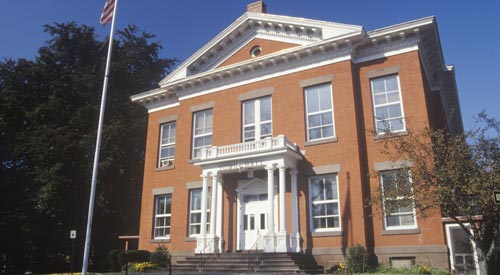-
Business
-

Policy & Business
-
-
Federal IT
-

Information Technology
-
-
State & Local
-

State & Local Government
-
-
Defense
-

Defense & Intelligence
-
-
Healthcare
-

Healthcare Policy & IT
-
-
Energy
-

Energy Policy & Technology
-
-
Education
-

Education Policy & Technology
-
Johns Hopkins researchers use deep learning to combat pancreatic cancer
Healthcare IT News: Only 7 percent of patients live five years after diagnosis of pancreatic cancer, the lowest rate for any cancer, according to the American Cancer Society. Elliot K. Fishman, MD, a researcher and radiologist at Johns Hopkins, is on the forefront of trying to change this statistic, and he's using artificial intelligence to do it.
Fishman aims to spot pancreatic cancers far sooner than humans alone can by applying GPU-accelerated deep learning artificial intelligence to the task. Johns Hopkins is suited to developing a deep learning system because it has the massive amounts of data on pancreatic cancer needed to teach a computer to detect the disease in a CT scan. Hospital researchers also have NVIDIA's DGX-1 AI Supercomputer.
Tags
Top Stories
- VA Says Its Renewed Infrastructure Review Will Focus on Building First
- Veterans Affairs Unveils Draft for $60B T4NG 2 Vehicle
- VA is Working to Add New Features to its Health and Benefits App
- Homelessness Among Veterans Has Been Cut in Half since 2010, VA Says
- Leidos partners with Accenture to deliver CDC cloud modernization
- Top 10 privacy and cybersecurity stories of 2022
- How to Solve the Healthcare Data Conundrum
- Top 10 privacy and cybersecurity stories of 2022
- Cardinal Health CIO Michelle Greene on simplifying transformation
- Get a handle on insider threats with industry intel
- Defense Department Health Plan Cuts Its Pharmacy Network by Nearly 15,000 Outlets
- Senator questions Mark Zuckerberg over Meta's healthcare data collection policies
- ‘I Can Go Anywhere’: How Service Dogs Help Veterans With PTSD
- Cutting Thousands of Medical Personnel Won’t Reduce Access to Care, Army Surgeon General Says
- VA ‘Moving Toward Full Compliance’ With Geospatial Data Law, Watchdog Finds
- NIH Injects $130M to Provide Quality Tools, Data for AI in Medicine
i360Gov Newsletters
The most significant government policy, business, and technology news and analysis delivered to your inbox.
Subscribe NowTrending
- Leidos partners with Accenture to deliver CDC cloud modernization
- Cardinal Health CIO Michelle Greene on simplifying transformation
- Army’s New Plan to ‘Transform’ Soldier Health Care with Technology
- VA Systems are Vulnerable to Cyber Intrusions Due to Lack of Effective Oversight, Report Says
- The business value of NLP: 5 success stories
- Defense Department Health Plan Cuts Its Pharmacy Network by Nearly 15,000 Outlets
- VA ‘Moving Toward Full Compliance’ With Geospatial Data Law, Watchdog Finds
- NIH Injects $130M to Provide Quality Tools, Data for AI in Medicine
Also in Healthcare Policy & IT
About
i360Gov is an intelligent network of websites and e-newsletters that provides government business, policy and technology leaders with a single destination for the most important news and analysis regarding their agency strategies and initiatives.
Contact Us
Telephone: 202.760.2280
Toll Free: 855.i360.Gov
Fax: 202.697.5045











